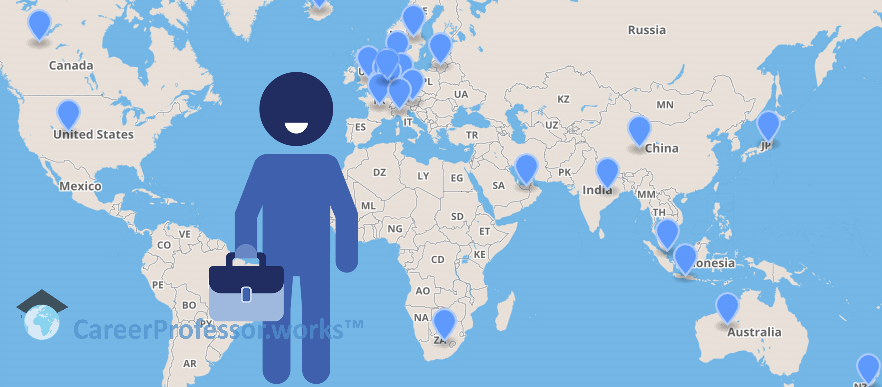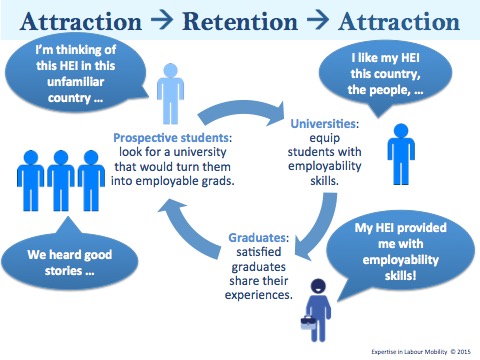
The Value of Global Experience
On my way to the CBIE Atlantic conference in Halifax to speak on Best Practices in Communication the Value of Global Experience, I picked up the blog by Hans de Wit and Philip Altbach for University World News. And I agree with them that this year’s NAFSA was a bit overwhelming, a huge number of people making it rather obvious there are huge numbers involved when we talk internationalisation of higher education. The big numbers apply both to the people involved (students and staff) as well as to the fact that we are dealing with an industry. But whether ‘the industry thing’ is a bad thing, I doubt it. Many of us look at Australia as being a leading beacon in internationalisation of higher education and let’s face it, for the Australians the money that internationalisation of higher education brings is not an issue, on the contrary. By now #Intled is the 3rd largest sector of the Australian economy and I think it is in that position because they’ve strategised internationalisation into their higher education policies. For Australian Higher Education Institutions and the Australian government internationalisation is not a nice-to-have, it is a strategic part of their higher education framework.

Coming back to the worries of de Wit and Altbach, I agree that internationalisation of higher education should not be about making money, either via tuition fees or by the money international students (and their families) spend during their stay abroad. It should be about learning to understand other cultures, valuing cultural differences, building cultural competencies, becoming more self-assured, building resilience, enhancing curiosity, learning other languages, becoming global citizens. It is about the skills that will get them hired after graduation. In one word, it is about employability.
There is one thing I learnt from having worked at the European Commission and that is that in order to win people over for a ‘good cause’, you have to show them the benefits it brings to them personally. The carrot for many stakeholders involved in higher education is in my opinion employability. And let me decipher one myth when we talk about employability, it is not ‘just’ the job upon graduation, it also does not mean we should only train students in the STEM fields – employability means equipping all our students with those skills and that training that would make them feel they can realise their maximum potential.
During the panel discussion at the CBIE Atlantic Conference, Katie Orr, Director of NSCC International, made a comment about global experience no longer being a nice-to-have on your CV or resume. She made a link to having WordPerfect as an added value on your resume in the ’90’s. Whereas today no one would mention their computer literacy as it is implied with the level of education. I agree with Katie Orr and the overriding reason for me to be an advocate for employability, is because if we can use employability outcomes of higher education to turn global experience into the WordPerfect of today, we have succeeded in our aim of internationalisation of higher education. And if this means we have become part of an industry in the process, I’m OK with that as long as the outcome is “global citizens with an understanding for other cultures”. Because if we are able to nurture such talents ready to find their route into a globalised world, we have managed to keep on track with the traditional values of internationalisation of higher education.
Nannette Ripmeester, ELM team
© Expertise in Labour Mobility B.V. All rights reserved.
